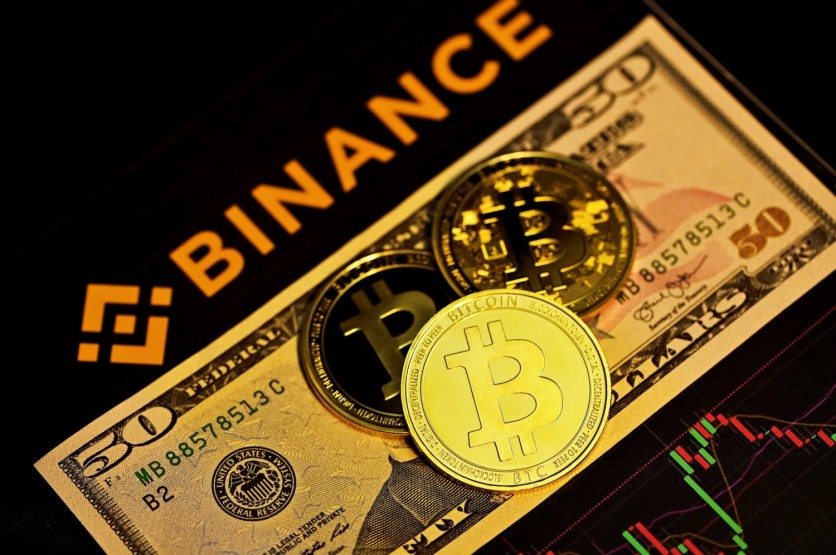
The impact of Binance USD (BUSD) on cross-border transactions and remittances cannot be underestimated. In this article, we will discuss how Binance USD is impacting cross-border transactions and remittances. As Binance USD revolutionizes international remittances, automated trading platforms like BitQT offer investors a chance to optimize their crypto trading, providing a bot capable of executing trades in mere microseconds.
How Binance USD is Facilitating Remittances for Migrant Workers
The impact of Binance USD (BUSD) on remittances for migrant workers in developing countries is significant. Migrant workers often face challenges when sending money back to their home countries, including high transaction fees, lengthy processing times, and limited accessibility to traditional banking systems.
By leveraging the benefits of blockchain technology, Binance USD offers a decentralized and secure platform for cross-border transactions. Migrant workers can easily convert their earnings into BUSD and transfer funds to their families abroad with reduced fees and quicker processing times compared to traditional banking systems. This not only ensures that more money reaches the recipients but also helps alleviate the financial burden on migrant workers.
Case studies have shown the positive impact of Binance USD on remittances. For example, in countries where traditional remittance channels are costly and inefficient, migrant workers have reported significant savings by using Binance USD. The reduced fees allow them to send larger amounts of money back home, improving the standard of living for their families and contributing to economic development in their communities.
Moreover, the accessibility of Binance USD is another advantage for migrant workers. Many individuals in developing countries lack access to traditional banking services, making it difficult for them to receive remittances through traditional channels. However, with Binance USD, anyone with an internet connection can easily receive funds, eliminating the barriers posed by geographical limitations and inadequate banking infrastructure.
Binance USD also prioritizes security and transparency. The use of blockchain technology ensures that transactions are recorded and verified, reducing the risk of fraud and unauthorized activities. Migrant workers can have peace of mind knowing that their hard-earned money is secure during the transfer process.
In conclusion, Binance USD is playing a vital role in facilitating remittances for migrant workers. Its cost-effectiveness, speed, accessibility, and security features make it an ideal solution for individuals seeking to send money across borders. As Binance USD continues to gain popularity and adoption, it has the potential to reshape the remittance industry, providing greater financial inclusivity and empowerment for migrant workers worldwide.
The Future of Cross-Border Transactions with Binance USD
The future of cross-border transactions with Binance USD (BUSD) holds immense potential for transforming the global financial landscape. As blockchain technology and cryptocurrencies gain traction, Binance USD is poised to play a significant role in reshaping how transactions occur across borders.
One key aspect of the future of cross-border transactions is the exploration of blockchain technology. Binance USD, being built on a blockchain, offers several advantages over traditional systems. It enables secure, transparent, and immutable transactions, minimizing the risk of fraud and increasing trust among parties involved. With the use of smart contracts, Binance USD can also automate and streamline complex cross-border transactions, reducing the need for intermediaries and associated costs.
Cryptocurrencies, including Binance USD, are increasingly being recognized as viable alternatives to traditional currencies in cross-border transactions. Their decentralized nature and ability to operate independent of central banks or intermediaries make them attractive for individuals and businesses engaged in international trade. Binance USD, with its stable value pegged to the US dollar, provides stability and mitigates the volatility often associated with other cryptocurrencies, making it more suitable for cross-border transactions.
The future of cross-border transactions with Binance USD also presents opportunities and challenges. On one hand, the widespread adoption of Binance USD can lead to increased financial inclusion, especially in regions where traditional banking services are limited. It can empower individuals with access to affordable and efficient cross-border transactions, fostering economic growth and improving living standards.
On the other hand, challenges such as regulatory frameworks and compliance measures need to be addressed. As governments and regulatory bodies grapple with the evolving nature of cryptocurrencies, ensuring proper regulation and compliance with anti-money laundering (AML) and know-your-customer (KYC) requirements becomes crucial. Collaboration between Binance USD and financial institutions can help establish robust frameworks that balance innovation and compliance, paving the way for wider acceptance and adoption.
Conclusion
In a world increasingly reliant on global connectivity, Binance USD (BUSD) has emerged as a catalyst for revolutionizing cross-border transactions and remittances. Its innovative use of blockchain technology, coupled with its secure and cost-effective nature, empowers individuals and businesses to conduct transactions seamlessly across borders. As BUSD gains wider adoption, it has the potential to reshape the global financial landscape, driving economic growth and financial inclusivity.




![Most Useful Google Chrome Keyboard Shortcuts You Need to Know to Improve Your Browsing Experience [2024]](https://d.techtimes.com/en/full/449047/most-useful-google-chrome-keyboard-shortcuts-you-need-know-improve-your-browsing-experience-2024.jpg?w=184&h=103&f=476d29fd60df70a67f6679f99a2ca6d0)